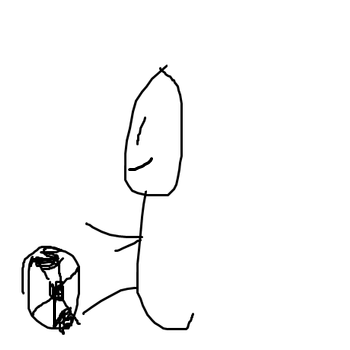Consider the reaction
#"NaCl(aq)" +"AgNO"_3"(aq)" → "AgCl(s)" + "NaNO"_3"(aq)"#
The ionic equation is:
#"Na"^+"(aq)" + "Cl"^(-)"(aq)" + "Ag"^+"(aq)" + "NO"_3^(-)"(aq)" →"AgCl(s)" + "Na"^+"(aq)" + "NO"_3^(-)"(aq)"#
The #"Na"^+# and #"NO"_3^(-)# ions are spectator ions because they remain unchanged on both sides of the equation. They just "watch" the other ions react, hence the name.
We usually cancel the spectator ions from each side of an ionic equation to form a net ionic equation :
#cancel("Na⁺(aq)") + "Cl"^(-)"(aq)" + "Ag"^+"(aq)" + cancel("NO₃⁻(aq)") →"AgCl(s)" + cancel("Na⁺(aq)") + cancel("NO₃⁻(aq)")#
#"Cl"^(-)"(aq)" + "Ag"^+"(aq)" → "AgCl(s)"#
EXAMPLE :
Identify the spectator ions and write the net ionic equation for the reaction:
#"HCl(aq)" + "NaHCO"_3"(aq)" → "NaCl(aq)" + "H"_2"O(l)" + "CO"_2"(g)"#
SOLUTION :
Ionic Equation:
#"H"^+"(aq)" + "Cl"^(-)"(aq)" + "Na"^+"(aq)" + "HCO"_3^(-)"(aq)" → "Na"^+"(aq)" + "Cl"^(-)"(aq)" + "H"_2"O(l)" + "CO"₂"(g)"#
The spectator Ions are #"Cl"^-# and #"Na"^+# .
Net Ionic Equation:
#"H"^+"(aq)" + cancel("Cl⁻(aq)") + cancel("Na⁺(aq)") + "HCO"_3^(-)"(aq)" → cancel("Na⁺(aq)") + cancel("Cl⁻(aq)") + "H"_2"O(l)" + "CO"_2"(g)"#
#"H"^+"(aq)" + "HCO"_3^(-)"(aq)" → "H"_2"O(l)" + "CO"_2"(g)"#
Here is a video on spectator ions
VIDEO


